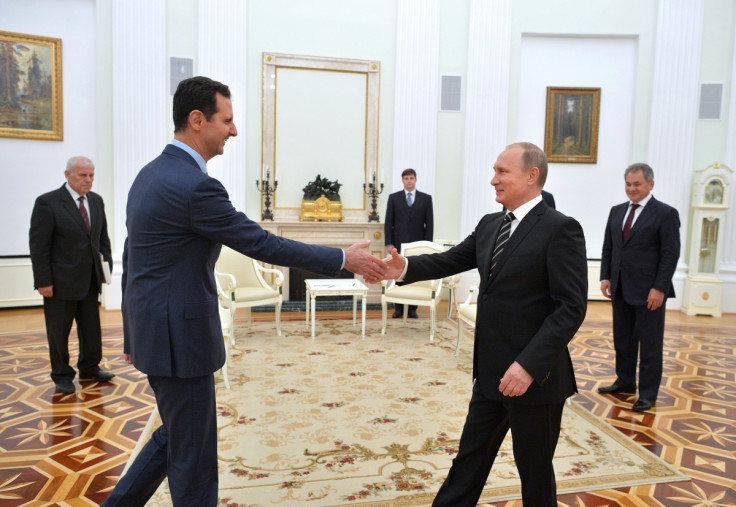Syria: Bashar al-Assad regime is 'in a better place now' due to Russian air strikes

President Bashar al-Assad will head into negotiations in Geneva aimed at reaching a political solution with opposition groups to end the bloody civil war with a stronger hand to play. Assad has been given a significant boost after the US's highest-ranking military officer said that Russian air strikes in Syria have served to allow the leader to stabilise his grip on power and regain "some small amounts of land".
Since it began conducting air strikes in Syria on 30 September 2015, Moscow has been accused of targeting anti-Assad groups rather than the terrorists in an effort to prop up the regime. General Joseph F Dunford Jr said that the government in Damascus was "in a worse place before, and the regime is in a better place now." Despite recent government gains, such as the recapture of Salma in Latakia province in early January, rebels have been fighting back and Dunford said: "It hasn't changed the game for us".
Russian air strikes in Syria have killed more civilians than Isis (Daesh) members. According to the British-based Syrian Observatory for Human Rights, 1,000 civilians have died in Russian bombing compared to 893 IS members. In total, 3,000 people have been killed by the Kremlin's shelling.
General Dunford added that a strategy to isolate the de facto IS capital of Raqqa in Syria from other territories held by the terrorist group – including Iraq's second city of Mosul – is under way. The main road linking the two cities has been severed in a bid to limit supplies from reaching Mosul from Raqqa.
The military general also confirmed that Washington is still conducting its operations in Syria separately to those of the Kremlin, the New York Times reported. General Dunford said that the US is "not doing anything now that is characterised as co-ordinating" with Russia in Syria.
The talks in Geneva in the last week of January are looking increasingly ominous as squabbles continue to persist over who will represent the range of Arab and Western-backed opposition groups. The UN will moderate the talks, but is yet to send out invitations due to the ongoing disagreement between the US and Russia – the main sponsors of the negotiations – over who will be present.
© Copyright IBTimes 2024. All rights reserved.






